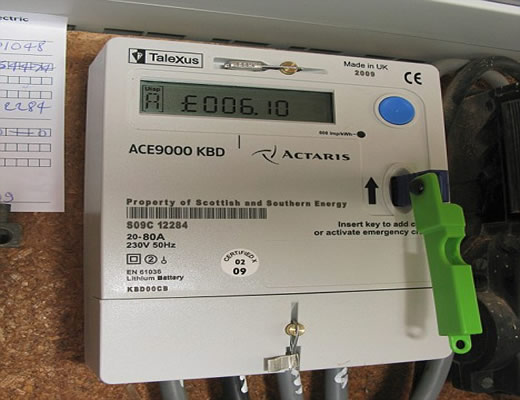By Energy Worth
The Federal Government on Monday, said it would take advantage of the Meter Asset Provider Regulations recently introduced by the Nigerian Electricity Regulatory Commission (NERC), by providing N37bn for the supply of meters by the private sector.
It also charged power firms to consult the Nigerian Meteorological Agency in order to effectively manage the challenges currently affecting the transmission and distribution arms of the sector by the rainy season.
The Minister of Power, Works and Housing, Babatunde Fashola, who stated these at the 28th monthly meeting of operators in the sector, observed that from service issue of electricity supply, there was the bigger and compelling issue of estimated billing and lack of meters.
He stated, “Meter supply has become the big issue of the moment that consumers want us to resolve. As a government, we hear them loudly and clearly, and as service providers, we hope that you can hear them too.
“As power supply continues to increase in generation, transmission and distribution, the demand for meters will increase, because more power supply and consumption will likely result in increased bills.”
The minister added, “Estimated billings in these circumstance will become a major cause of distrust and conflict between consumers and distribution companies, and meters are the easiest way to build the bridge of trust.
“On the executive side of government, we are responding by taking advantage of the Meter Asset Provider Regulations to deploy a fund of N37bn towards supplying meters through the private sector.”
Fashola urged all the Discos that had yet to take advantage of the opportunity to quickly do so, or make their own funding arrangements and contract their meter providers to supply and install meters.
He said the Yola Electricity Distribution Company was trying to get 400,000 meters through the MAP initiative, while the Abuja Disco was also working to get 250,000 meters.
“Let me be clear that every Disco is affected, and every Disco needs to respond by providing meters quickly and seeking to end estimated billing, which is subjective, discretionary and prone to abuse,” the minister added.
On service delivery in the sector, Fashola told participants that “we are beginning a different weather season and every weather cycle all over the world has consequences, not only on power assets, but also on general infrastructure.”
He said the rainy season had its benefits to farmers, fishermen and others, but was also a challenge for those who manage the power sector, adding that it was important for the operators to consult NiMet at this period.
“You can get more details on rainfall pattern from NiMet, as it is now a largely recognised institution for the whole of West Africa in terms of meteorological and weather prediction accuracy. So, all of you can access the NiMet website or contact them for information so that we can anticipate, plan and be strong,” Fashola added.









